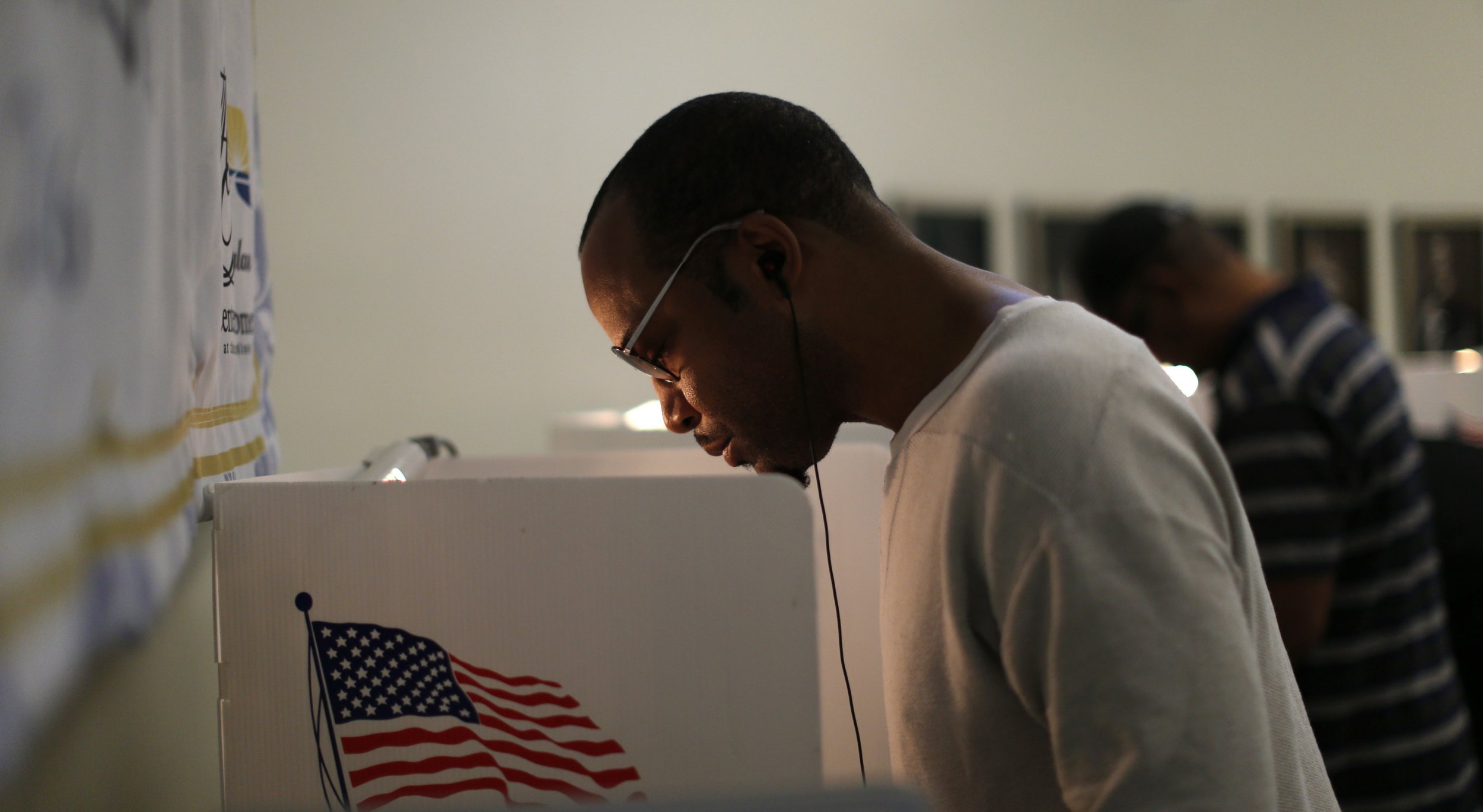
Hillary Clinton is being pushed by computer scientists and lawyers to challenge the presidential election results in three key swing states, two of which Donald Trump won two weeks ago. While one member of that group said in an online post Wednesday that the results were "probably not" hacked, he advised Clinton to file for an examination of the physical evidence.
Related: Trump criticized for breaking promise to go after Clinton
The group believes it found evidence that vote totals in the three states—Michigan, Pennsylvania and Wisconsin—might have been affected by a cyberattack, saying the Democratic nominee received 7 percent fewer votes in counties that relied on electronic-voting machines instead of paper ballots or scanners, New York magazine reported.
But the professor who posted online, J. Alex Halderman of the University of Michigan (who also directs the Center for Computer Security and Society), said the most likely explanation for Trump's win is that the polls "were systematically wrong." Most pre-election polls indicated Clinton would win the presidency.
Trump defeated Clinton in Pennsylvania and Wisconsin, and while the billionaire businessman is ahead of the Democrat in Michigan, the state's results are not yet final.
Halderman also argued that a foreign government could have probed certain election offices prior to November 8 to find ways to break into computers and ultimately spread malware into voting machines in states where polling data showed close electoral margins. The Obama administration has publicly accused the Russian government of directing hacks to influence the election, including leaking emails from the Democratic National Committee and from several individual accounts, such as that of Clinton campaign Chairman John Podesta.
Russia, Halderman said, "has sophisticated cyberoffensive capabilities." He cited an instance from 2014 when attackers linked to Russia reportedly sabotaged Ukraine's vote-counting infrastructure during elections.
"The only way to know whether a cyberattack changed the result," Halderman said of the 2016 U.S. election, "is to closely examine the available physical evidence—paper ballots and voting equipment in critical states like Wisconsin, Michigan, and Pennsylvania." He said that doing so would solidify the results and erase some Americans' doubts about the outcome.
He added, "Nobody is ever going to examine that evidence unless candidates in those states act now, in the next several days, to petition for recounts."
It remains unclear how Clinton's campaign would respond to the group's call. She conceded the race in an early-morning phone call to Trump on November 9. Just hours later, she gave her concession speech to Americans on TV.
Deadlines are approaching to file for recounts. Meanwhile, more than 165,000 Americans have signed an online petition calling for an audit of the electronic results against the paper ballots. And the sister of Clinton aide Huma Abedin has encouraged her followers on Facebook to call the U.S. Justice Department to demand audits in key states. Also, thousands of Clinton supporters across the country have taken to the streets to protest Trump's win, often declaring he's "not my president."
Trump is headed to the White House because he won the electoral vote. But Clinton beat him in the popular vote, which suggests she was favored by more Americans. As some voters wonder if her election loss means the end of the Clinton era, the former secretary of state has been spotted in public a few times since November 8—speaking at the Children's Defense Fund; on a hike in the woods near her home in Chappaqua, New York; and shopping at a Rhode Island bookstore.
Trump will remain a private citizen until he is sworn in as president on Inauguration Day, January 20. Perhaps the irony about the possible Clinton recount challenge isn't lost on the members of his campaign: Toward the end of the campaign, the real estate mogul suggested he would challenge the results—if he lost.
Read more from Newsweek.com:
- Where gun control won—and lost—in the election
- Analyst sees path to Trump-Clinton tie
- How to fix the Electoral College system
Uncommon Knowledge
Newsweek is committed to challenging conventional wisdom and finding connections in the search for common ground.
Newsweek is committed to challenging conventional wisdom and finding connections in the search for common ground.
About the writer
Michele Gorman is a Newsweek political reporter, with a focus on gun policy. She previously worked at msnbc.com, where she ... Read more
To read how Newsweek uses AI as a newsroom tool, Click here.








